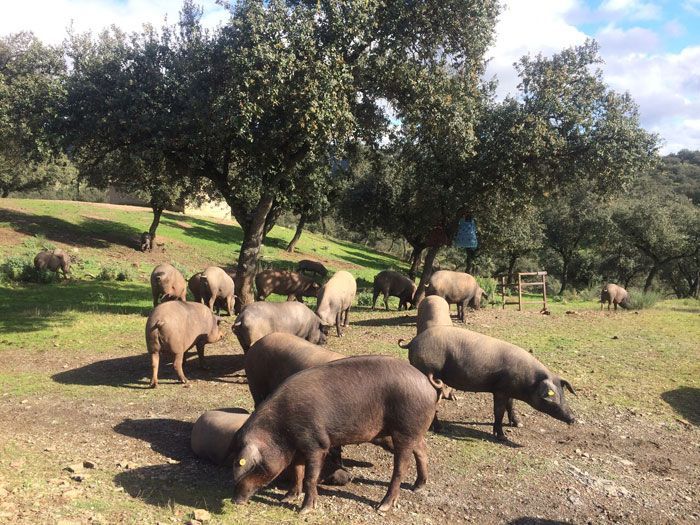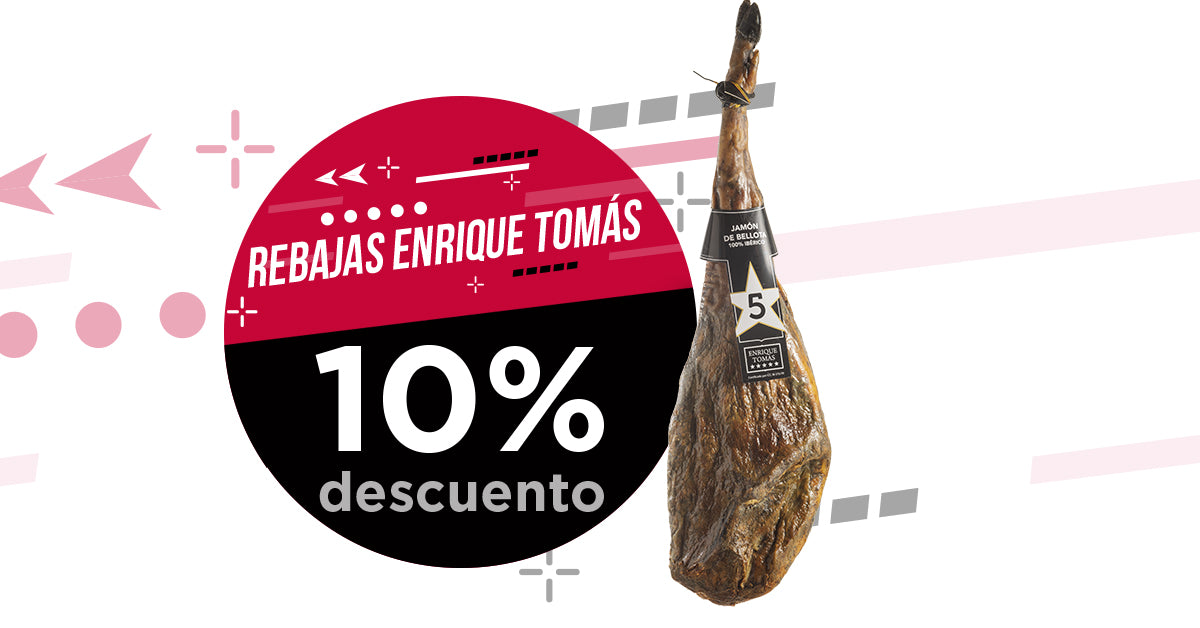
Iberian Ham in 2018, how much will there be?
In Spain, the Interprofessional Association of Iberian Pork, known by its acronym ASICI, has presented the results of the 2017-2018 acorn season, confirming the good moment that the Iberian pork industry is experiencing, with a slight increase in the number of Iberian pigs fed on acorns in the dehesas (pastures). But then, how much ham will there be in 2018...
The data from this season look promising, and at Enrique Tomás, we will explain all the details and what this means for those of us who enjoy a good cured ham on our table.
Ham Production in Spain
The law that regulates ham production in Spain was created in 2014 with the aim of standardizing the production of cured hams, always protecting the purity of the Iberian breed and fighting against fraud. This regulation strictly controls the classification and labeling of ham, especially Iberian ham, as well as the ways and areas of pig breeding, ensuring that pastures host an optimal number of pigs according to their surface area and the number of trees. To summarize this law, we can clarify that:- For a pig to be considered Iberian, the mother must always be of 100% Iberian breed
- The terms "dehesa" and "montanera" (in text or images) can only be used when referring to acorn-fed Iberian hams
- What was previously known as "recebo" is now called "cebo de campo" (field-fed)
- It's not necessary for ham to have a Designation of Origin (DO) to be 100% Iberian
- The term "pata negra" (black hoof) can only be used when referring to 100% Iberian acorn-fed ham
- The minimum age for an Iberian pig before slaughter depends on its diet: Acorn-fed - 14 months. Raised in pasture and fed with feed and grains - 12 months. Raised in feedlots or farms - 10 months
- The different qualities of Iberian ham will be identified with color-coded labels, according to the purity percentage of the breed and the type of pig feed
Despite this, at Enrique Tomás, we want to clarify that, although regulations, controls, and labels have represented significant progress in transparency in the world of ham for consumers, none of this serves as a guarantee that you will like a ham more or less.
The work of chefs and artisans who ensure the creation of Iberian hams from the moment of slaughter until it reaches the consumer is a commendable task that will indeed determine whether a ham is perfect or not.
2017/2018 Acorn Season
How Much Ham Will There Be in 2018
According to ASICI's computer system, 729,579 acorn-fed pigs have been certified during the 2017/2018 acorn season, a number that slightly increases the production compared to the previous season.
This digital information system, known as ÍTACA, is responsible for integrating and transmitting the traceability of Iberian products from the beginning, from the birth of piglets to the appearance of various products on store shelves.

So, how much ham will there be in 2018? Will there be more than 700,000 hams next season? The answer is yes, and this translates to the curing of 1,459,146 top-quality Iberian hams during the year 2018 in Spain.
But remember that Iberian ham can have different qualities depending on the purity of the breed and the pig's diet. Therefore, ASICI's certification corresponds to:
100% Iberian Acorn-fed Ham – Black Label: 47%
75% Iberian Acorn-fed Ham – Red Label: 14.2%
50% Iberian Acorn-fed Ham – Red Label: 38.8%
As you can see, this category does not include hams with green or white labels, which are also Iberian but have not been fed on acorns and, therefore, have not undergone the montanera (acorn-feeding period).
Now that you know how much ham there will be in 2018, don't waste time and plan your purchases. At Enrique Tomás, you'll always find the best professionals ready to assist you and explain all the details of this wonderful world of Iberian products, our passion and reason for being.





